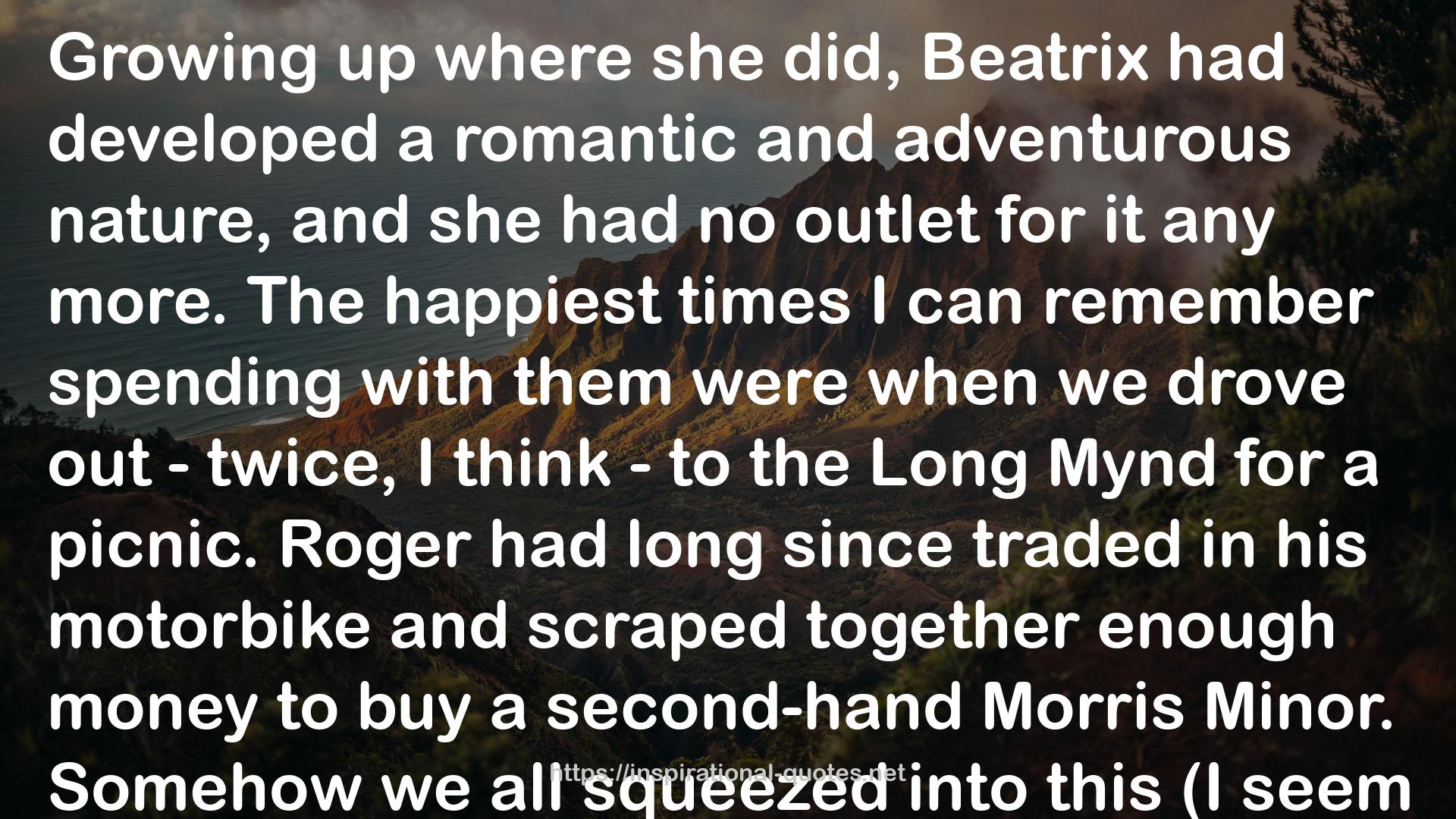" Growing up where she did, Beatrix had developed a romantic and adventurous nature, and she had no outlet for it any more. The happiest times I can remember spending with them were when we drove out - twice, I think - to the Long Mynd for a picnic. Roger had long since traded in his motorbike and scraped together enough money to buy a second-hand Morris Minor. Somehow we all squeezed into this (I seem to recall sitting in the front passenger seat, Beatrix sitting behind me with the baby on her lap) and drove out for the afternoon to those wonderful Shropshire hills. I wonder if you have ever walked on them yourself, Imogen. They are part of your story, you know. So many things have changed, changed beyond recognition, in the almost sixty years since the time I'm now recalling, but the Long Mynd is not one of them. In the last few months I have been too ill to walk there, but I did manage to visit in the last spring, to offer what I already sensed would be my final farewells. Places like this are important to me - to all of us - because they exist outside the normal timespan. You can stand on the backbone of the Long Mynd and not know if you are in the 1940s, the 2000s, the tenth or eleventh century... It is all immaterial, all irrelevant. The gorse and the purple heather are unchanging, and so are the sheeptracks which cut through them and criss-cross them, the twisted rocky outcrops which surprise you at every turn, the warm browns of the bracken, the distant greys of the conifer plantations, tucked far away down in secretive valleys. You cannot put a price on the sense of freedom and timelessness that is granted to you there, as you stand on the high ridge beneath a flawless sky of April blue and look across at the tame beauties of the English countryside, to the east, and to the west a hint of something stranger - the beginnings of the Welsh mountains "
― Jonathan Coe , The Rain Before it Falls
